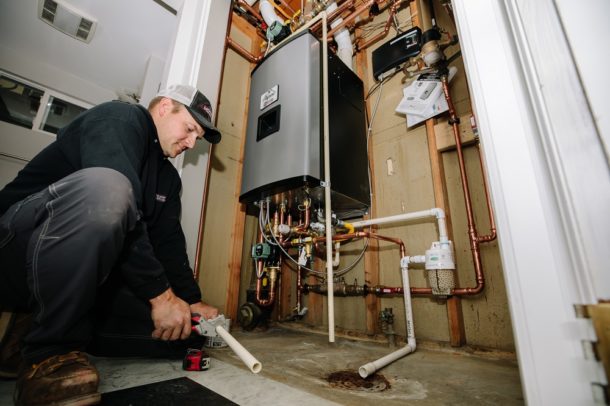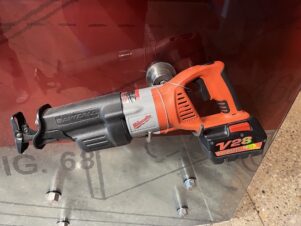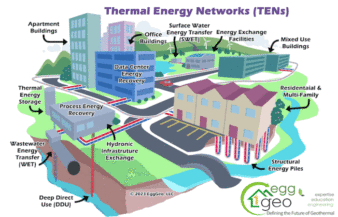Boilers are required for heating your home and providing hot water. They keep us warm in the winter and help us with everyday tasks like taking showers or washing dishes. But like all machines, boilers can wear out over time.
When your boiler starts to malfunction, you may wonder whether it’s better to keep repairing it or to replace it entirely. Deciding when to replace your boiler instead of opting for emergency repairs can be tricky, but knowing the signs can help you make the right decision.

How Boilers Work and Why They Break Down
A boiler heats water using gas, oil, or electricity, which is then circulated through pipes to provide heat and hot water to your home. Over time, parts of the boiler can wear down due to use, dirt, or age. Boilers usually last around 10-15 years, but some may need replacement earlier depending on their condition and usage.
A well-maintained boiler can last longer, but wear and tear are inevitable. If your boiler is not regularly serviced, it can develop problems that are costly to fix. In some cases, emergency repairs might be a quick fix, but they don’t solve underlying issues. This is where the decision to replace your boiler comes into play.
What are the Signs to Replace Your Boiler
Several signs suggest it might be time to replace your boiler. These include frequent breakdowns, rising energy bills, strange noises, and age. Identifying these early helps you avoid expensive, ongoing repairs and ensures a more efficient, reliable heating system that keeps your home comfortable throughout the year. These factors can be:
1. Age of the Boiler
Boilers generally last 10-15 years, but this can vary depending on how well the unit is maintained. If your boiler is over 10 years old, it might be time to consider replacing it, even if it’s still working. Older models are less energy-efficient, which means they could be costing you more money in energy bills. Newer models, on the other hand, are designed to be more efficient, saving you money in the long run.
2. Rising Energy Bills
A boiler that’s working harder than it should will increase your energy bills. If you’ve noticed that your heating costs are rising and your boiler is still operating as usual, it could be a sign that it’s no longer functioning efficiently. Older boilers lose heat through cracks or poorly insulated parts, forcing them to consume more energy. Replacing your boiler with a more efficient model could cut down on energy costs significantly.
3. Frequent Breakdowns
If your boiler has broken down several times in the past year and you find yourself constantly needing emergency repairs, it might be time to replace it. While some issues can be fixed with simple repairs, repeated breakdowns often signal that the boiler is reaching the end of its life. Constant repairs can become more expensive than investing in a new, reliable model.
4. Strange Noises or Leaks
If your boiler is making unusual sounds like banging, clanging, or whistling, it’s a sign that something is wrong inside. These noises could indicate air or limescale buildup, which can lead to more serious issues if ignored. Leaking water or steam is another red flag. While minor leaks can sometimes be repaired, large or persistent leaks usually point to a failing boiler that’s better off being replaced.
Why Replacing Your Boiler Is the Better Long-Term Investment
Replacing your boiler might seem like a big upfront cost, but in the long run, it’s usually the better investment. Newer boilers are designed to be much more energy-efficient than older models, which can save you a significant amount on your energy bills. Older boilers lose heat more easily and require more energy to maintain the same level of warmth, making them expensive to run.
If you’re looking for emergency boiler repair Long Island services, contact NH Ross, a trusted provider of emergency boiler repair, to discuss your options and determine the best solution for your home’s heating needs. A new boiler will not only offer more reliability and fewer breakdowns but also give you peace of mind knowing that you’re less likely to face unexpected issues. The upfront cost of a new boiler can often be offset by savings on repairs and energy bills over time.
How Replacing Your Boiler Reduces Maintenance and Improves Reliability
Replacing your old boiler offers significant advantages in terms of reliability and reduced maintenance. Newer boilers are built to be more durable, requiring less frequent servicing and repairs.
This not only saves you money on emergency repairs but also ensures your heating system runs smoothly throughout the year. With fewer breakdowns and improved performance, a new boiler gives you peace of mind and keeps your home comfortable.
FAQs
How do I know if my boiler needs replacing?
If your boiler is over 10 years old, constantly breaks down, or your energy bills keep rising, it’s a good sign that replacement may be necessary. Frequent repairs and decreasing efficiency indicate that it’s no longer performing well and could be costing you more in the long run.
How much does it cost to replace a boiler?
The cost of replacing a boiler can vary depending on the model and installation. While it requires an upfront investment, the long-term savings on energy bills and fewer repairs make it a valuable choice.
Conclusion
In the long run, replacing your boiler instead of relying on continuous emergency repairs can save you both money and frustration. If your boiler is old, inefficient, or frequently breaking down, opting for a replacement ensures you avoid the recurring costs of repairs while improving the overall efficiency of your home’s heating system.
A new boiler will provide better performance, lower energy bills, and greater reliability, ultimately offering more value over time. By making this investment now, you can enjoy consistent comfort and peace of mind, knowing that your home’s heating needs are met without constant disruption.




Join the conversation: